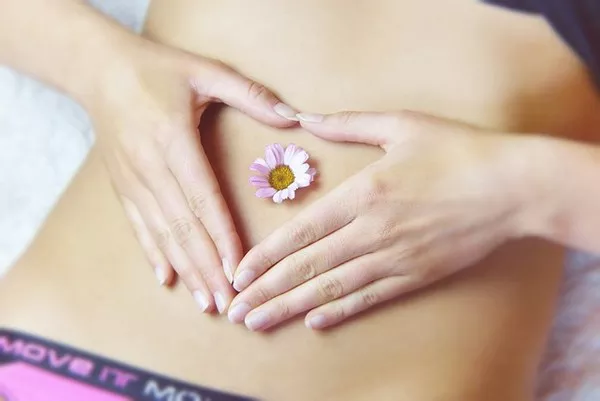Premenstrual Syndrome (PMS) is a common condition that affects many women during their reproductive years. Characterized by a variety of physical and emotional symptoms, PMS can significantly impact daily life. Symptoms may include mood swings, irritability, bloating, fatigue, and breast tenderness, typically occurring in the luteal phase of the menstrual cycle. While medications are available to manage these symptoms, many women find relief through self-care strategies. This article explores nine effective 9 Self-Care Habits That Ease Premenstrual Syndrome.
Understanding Premenstrual Syndrome
PMS is a complex condition influenced by hormonal fluctuations, particularly changes in estrogen and progesterone levels. These hormonal shifts can affect neurotransmitters in the brain, leading to mood changes and physical symptoms. While the exact cause of PMS is not fully understood, several factors may contribute to its severity, including genetics, lifestyle choices, and stress levels.
1. Maintain a Balanced Diet
Importance of Nutrition
A balanced diet plays a crucial role in managing PMS symptoms. Certain foods can exacerbate symptoms, while others can help alleviate them.
Recommended Dietary Changes
Increase Complex Carbohydrates: Foods rich in complex carbohydrates, such as whole grains, fruits, and vegetables, can help stabilize blood sugar levels and improve mood.
Limit Sugar and Salt: Reducing sugar intake can help prevent mood swings and fatigue, while limiting salt can reduce bloating and water retention.
Incorporate Calcium-Rich Foods: Calcium may help alleviate PMS symptoms. Dairy products, leafy greens, and fortified foods are excellent sources.
Stay Hydrated: Drinking plenty of water can help reduce bloating and improve overall well-being.
2. Regular Exercise
Benefits of Physical Activity
Exercise is a powerful tool for managing PMS symptoms. Regular physical activity releases endorphins, which can improve mood and reduce stress.
Recommended Types of Exercise
Aerobic Activities: Engaging in activities such as walking, jogging, cycling, or swimming for at least 30 minutes most days of the week can significantly reduce PMS symptoms.
Yoga and Stretching: Incorporating yoga or stretching exercises can help alleviate tension and promote relaxation.
3. Prioritize Sleep Hygiene
The Role of Sleep
Quality sleep is essential for overall health and well-being. Lack of sleep can exacerbate PMS symptoms such as irritability and fatigue.
Tips for Better Sleep
Establish a Routine: Going to bed and waking up at the same time each day helps regulate your body’s internal clock.
Create a Relaxing Environment: Ensure your bedroom is conducive to sleep by keeping it dark, cool, and quiet.
Limit Screen Time: Reduce exposure to screens before bedtime to improve sleep quality.
See also: 8 Common Health Problems Related To Menstruation
4. Manage Stress Effectively
Understanding Stress Impact
Stress can worsen PMS symptoms by increasing cortisol levels in the body. Finding effective ways to manage stress is crucial for symptom relief.
Stress Reduction Techniques
Mindfulness and Meditation: Practicing mindfulness or meditation can help calm the mind and reduce anxiety.
Deep Breathing Exercises: Simple deep breathing techniques can promote relaxation and alleviate stress.
Engage in Hobbies: Taking time for activities you enjoy can provide a welcome distraction from stressors.
5. Consider Supplements
Role of Nutritional Supplements
Certain vitamins and minerals may help alleviate PMS symptoms. However, it’s essential to consult with a healthcare provider before starting any new supplement regimen.
Recommended Supplements
Calcium: Studies suggest that calcium supplements may help reduce PMS symptoms such as mood swings and bloating.
Magnesium: Magnesium may alleviate cramps and improve mood; consider incorporating magnesium-rich foods like nuts, seeds, and leafy greens into your diet.
Vitamin B6: This vitamin has been linked to improved mood regulation; foods rich in B6 include fish, poultry, potatoes, and bananas.
6. Keep a Symptom Diary
Importance of Tracking Symptoms
Keeping track of your symptoms over several menstrual cycles can help identify patterns and triggers associated with PMS.
How to Maintain a Symptom Diary
Record the type of symptoms experienced.
Note their severity on a scale (e.g., 1 to 10).
Document when symptoms occur in relation to your menstrual cycle.
This information can be valuable for discussing treatment options with healthcare providers.
7. Use Heat Therapy
Benefits of Heat Application
Applying heat to the abdomen or lower back can provide relief from cramps associated with PMS.
Methods of Heat Therapy
Heating Pads: Using a heating pad on the abdomen can relax muscles and alleviate pain.
Warm Baths: Taking a warm bath with Epsom salts or essential oils can enhance relaxation while soothing cramps.
8. Limit Caffeine and Alcohol
Understanding Their Effects
Caffeine and alcohol can exacerbate PMS symptoms such as anxiety, irritability, and bloating. Reducing intake may lead to symptom improvement.
Recommendations for Reduction
Gradually decrease caffeine consumption by replacing coffee or caffeinated beverages with herbal teas or decaffeinated options.
Limit alcohol intake during the luteal phase of your cycle when PMS symptoms are most pronounced.
9. Seek Social Support
The Role of Community
Having a support system is vital for managing emotional aspects of PMS. Sharing experiences with friends or family members who understand what you’re going through can provide comfort.
Ways to Build Support
Join support groups or online communities focused on women’s health.
Engage in open conversations with friends about your experiences; this openness fosters understanding and support.
Conclusion
Managing premenstrual syndrome effectively requires a holistic approach that incorporates self-care habits into daily life. The nine strategies outlined—maintaining a balanced diet, engaging in regular exercise, prioritizing sleep hygiene, managing stress effectively, considering supplements, keeping a symptom diary, using heat therapy, limiting caffeine and alcohol intake, and seeking social support—can significantly ease PMS symptoms. By implementing these self-care habits consistently, women can enhance their well-being during this challenging time each month. If symptoms persist or worsen despite these efforts, consulting with a healthcare provider is recommended for further evaluation and treatment options tailored to individual needs.
Related topics:
6 Symptoms Of High Estrogen Levels After Menopause


